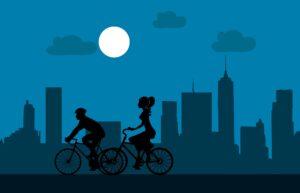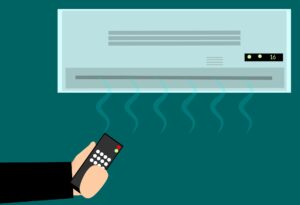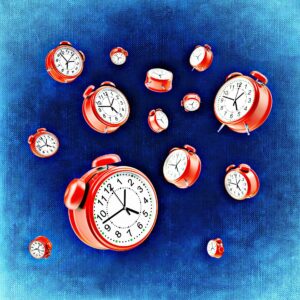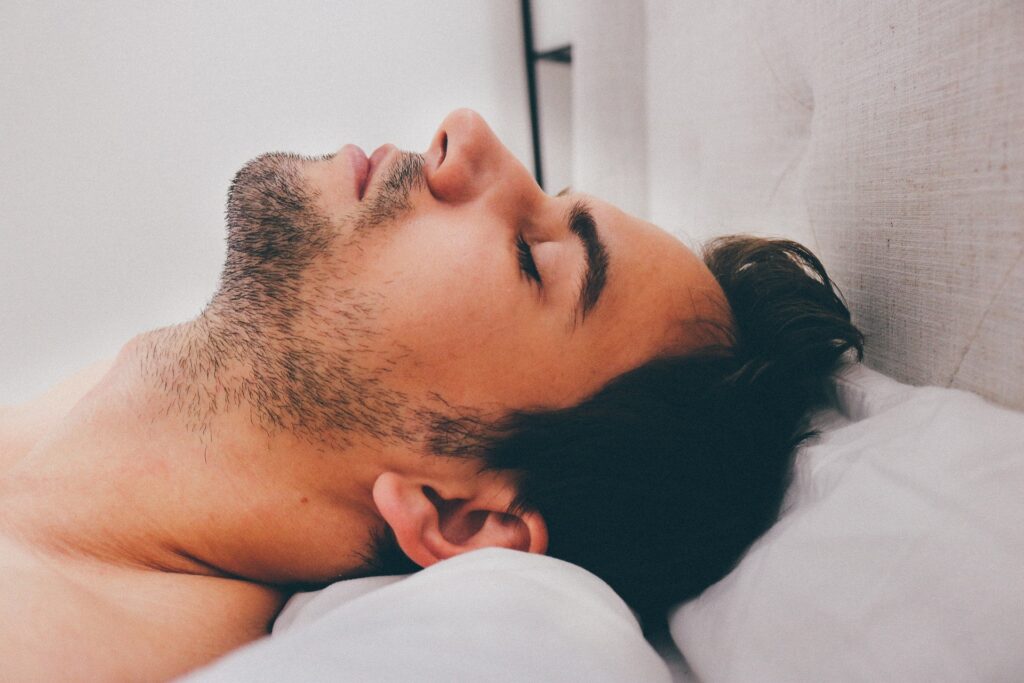“Sleep is an essential part of life-but more important, sleep is a gift”. – William C. Dement
For the dreamers out there, sleep can be a welcoming alternate world to escape to, a parallel universe where we’re able to spend time with lost loved ones again, travel the world or even become superheroes! Don’t get me wrong, half of those dreams are just plain weird and don’t seem to make any sense at all, I get that!
Unfortunately for some, it can be a real pain in the proverbial butt! A mind that’s racing, waking up with a bursting bladder every hour or just simply not being able to slip into a slumber no matter how many sheep you’ve counted in the process!
Let’s see if we can help with a few of our favourite ‘sleep hacks’. Hold on tight, you sleeping beauties. We’re putting the sheep out of their jobs!
Let’s go!
#1. AVOID THAT LATE-NIGHT CAFFEINE!

Let’s face it, caffeine is that big cuddly friend of ours in the morning, for many of us. Beginning our day without this beautiful substance can spell DANGER in neon lights for those people you’re about to face in your day. It will lead you to become that cranky co-worker who refuses to cooperate with anything or anyone until that fix has been had. “Give me that coffee, NOW!”
The problem with the intake of caffeine outside of the morning and deep into the day means that your window for winding down at bedtime shortens. After all, it is a stimulant, one that creates alertness of the mind, not sleepiness.
Our recommendation would be to make a habit of taming that all-day coffee binge. If you can implement a cut-off time at about midday onwards, your sleep will thank you for it. We all metabolise caffeine at slightly different rates, feel free to play around with your limit for the cut-off period.
A little trick we like to use is to add 150-300mg of L-Theanine to our brew! This is a unique amino acid which will not only enhance the effects of caffeine but also reduce ‘the jitters’ and increase focus. It’s a game-changer!
Other products containing caffeine to be aware of would be the likes of chocolate, non-herbal tea (especially green) and fizzy drinks. Smokers may also be prone to waking up early, due to nicotine withdrawal.
#2. MINIMISE BLUE LIGHT IN THE EVENINGS

Natural blue light from the sun is very beneficial to humans in the morning upon sunrise, it’s one key to setting our circadian rhythm (our 24hr internal clock that informs our body when to carry out certain important functions). Circadian rhythms are light and dark-sensitive, therefore are a key player in our sleep/wake cycles. This natural blue light is your morning superpower!
By the way, if you’re from the UK like us and you’re thinking “but it’s never sunny!”. Plentiful blue light still pierces through the clouds, even on a dull day. Hit those retinas with it!
Onto the ‘not so ideal’ artificial blue light then…
When the sun sets and we’re still ploughing blue light into our eyes deep into the evening, we’re forcing our bodies into a false sense of time. Heavy, constant artificial blue light from our screens in the evening can almost give us the feeling of jetlag the following day. You’re just not feeling as fresh as you think you should! This isn’t a coincidence.
Artificial blue light from our TVs, phones and LED/Halogen bulbs can have a serious effect on our restorative deep sleep. Your dreamy and memory-consolidating REM sleep will also be affected due to the circadian rhythm being out of tune. Our sleep hormone ‘Melatonin’ starts to secrete from early evening towards sunset, peaking around midnight. Blue light suppresses Melatonin’s ability to act, therefore our body still thinks it needs to be in an ‘awakened’ state of mind.
There are many ways we can minimise artificial blue light in the evenings. If you have dimmer switches, use them, and change LED and halogen bulbs out for incandescent, they emit far less blue light and quite a fair bit more red light as you would with fire, who hasn’t felt sleepy in front of a fire? I know, I know…this isn’t a very cool comment to make when our energy bills are beginning to look like jokes from a Christmas cracker…we’ve just gotta state some science. Turn down the Blackpool illuminations and get cosy!
By the way, red bulbs are an excellent option for the bedroom! We’re personally huge fans of Himalayan Rock Salt Lamps!
As for your devices, there are a few options you can now use that slowly pull the blue light away from the screen as the evening sets in. Such filters we use include ‘f.lux’ on Apple desktops and ‘Night Shift’ mode on Apple phones/tablets. ‘Twilight’ is a good app for Androids. For Windows, we would suggest using their ‘Night Light’ function.
Externally to that you can wear Blue Blocking ‘night’ glasses, they’re usually red lensed and will block blue light completely out of the spectrum. We are huge fans of ‘Bon Charge’ (previously known as BluBlox) but other brands are available and equally as brilliant, including ‘TrueDark’ and ‘Ra Optics’.
#3. DON’T EAT TOO CLOSE TO BEDTIME

Midnight munchies are great until you want to SLEEP! All that undigested food will be rattling around an upset stomach and probably keeping the other half of the bed well and truly disturbed, all night long. I’ll let you use your imagination for that one.
Allowing a minimum of 2-3 hours before bedtime to finish your last meal of the day is a really effective practice. The longer, the better. This allows our digestive system to do the heavy lifting before we’re expectant of our bodies to sleep. There is a lot of fresh energy swimming around in there! Your deep sleep should also be improved due to this.
The same goes for large amounts of liquid before bed. Another good practice is to hydrate before sleep. Sipping your water over a period of time rather than downing a huge glass right before you lay down. You may find the urge to pee at 3 a.m. has somewhat lessened!
#4. AVOID HEAVY LATE-NIGHT EXERCISE

20-30 minutes of daily exercise has been proven to improve circadian rhythm and deep sleep. Doing a little light activity early in the morning has shown to be very beneficial to how well we sleep. You can hit it hard in the gym by all means but the benefits really do just start with as little as a 10-20 minute walk!
On the other hand, it is important not to do too much heavy exercise late at night or too close to bedtime. Your heart rate will need time to slow down, and your cortisol will be higher than it wants to be. In basic terms, you’ll be charged up! Allow some time before winding down if you can.
#5. KEEP YOUR COOL

As our bodies prepare for a long restful night of sleep it begins a process called thermal regulation. Thermal Regulation occurs around 9 PM, on average. The reason for this is that your body knows it needs to cool down for restorative deep sleep. Think of deep sleep as the stage of sleep where your brain is performing self-cleaning. You don’t need to tell it, your body just knows!
Studies have shown that our deep sleep rapidly improves when our bodies are cooler by a degree or two. Science shows that by keeping your room at around 16.5 – 20°C (62 – 68°F), you stand a better chance of sleeping through, undisturbed.
As you all know, hot summer nights are tough for sleeping when you haven’t got access to aircon! A gale-force wind setting on your fan and some earplugs might help, a little.
One final little ‘extra tip’ which works fantastically well is to introduce a hot bath or shower around 90 minutes before bedtime. A minimum of 5 -10 minutes would be sufficient.
The reason this works is that the body has to cool itself after being heated. This cooling effect will mean that by the time you go to bed, thermal regulation (as mentioned above) will be activating.
Don’t be fooled by having a cold shower to cool yourself down to sleep. Cold showers switch on your fight or flight response, which is the opposite of what we are trying to achieve before we sleep!
Check out our previous article on the amazing benefits of cold showers.
#6. FIND THE PERFECT BEDTIME

Holding yourself to a regular bedtime is more important than you may think.
Our bodies become accustomed to patterns, these patterns eventually evolve into a subconsciously learnt routine. It’s not always the easiest habit to create but if you can adopt this then you will be rewarded, greatly!
Our working lives tend to dictate our bedtimes, unfortunately, because of our wake-up times. Research has shown that a bedtime of around 10 pm – 2 am is almost the ideal time for a relaxing deeper sleep. This would mean that your wake-up time would be between 7 am and 11 am.
Furthermore, studies have also shown that the benefit is almost twice the value per hour for going to bed within this time frame.
If this is an impossible task for you to achieve, then try to implement the previous 4 tips the best you can to help with your sleep pattern. After all, we’re trying to work with nature here, the best we can whilst our modern lifestyles are constantly trying to push us away from it.
SUMMARY
As we have learnt there is a handful of tips and tricks you can use in order to improve your sleep. There are many more tips to share with you but we feel these are probably some of the easiest (and cheaper) options to look at trying.
If you’re interested in tracking your sleep accurately then we highly recommend the ‘Oura Ring’. We have learnt an incredible amount by looking at our data points over the last few years. It’s fascinating. We’re not affiliated, just big fans of their product!
Let us know how you get on!
Sleep tight!
Seek and Discover

Pingback: 5 Reasons Why Cold Showers Are Amazing! - Seek and Discover
Pingback: Mouth Taping: Better Sleep, Better Health!
Pingback: How To Slow Down Ageing In 8 Steps - Seek and Discover